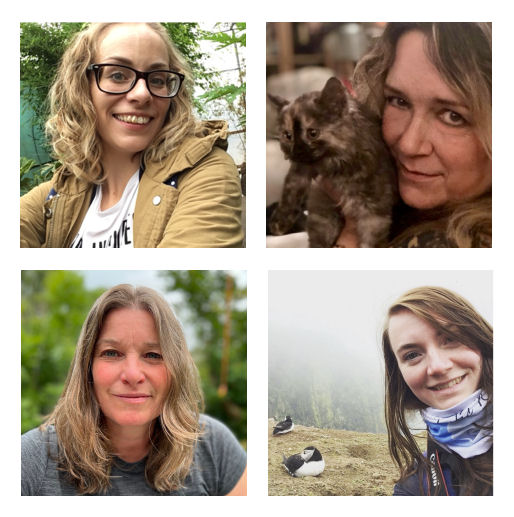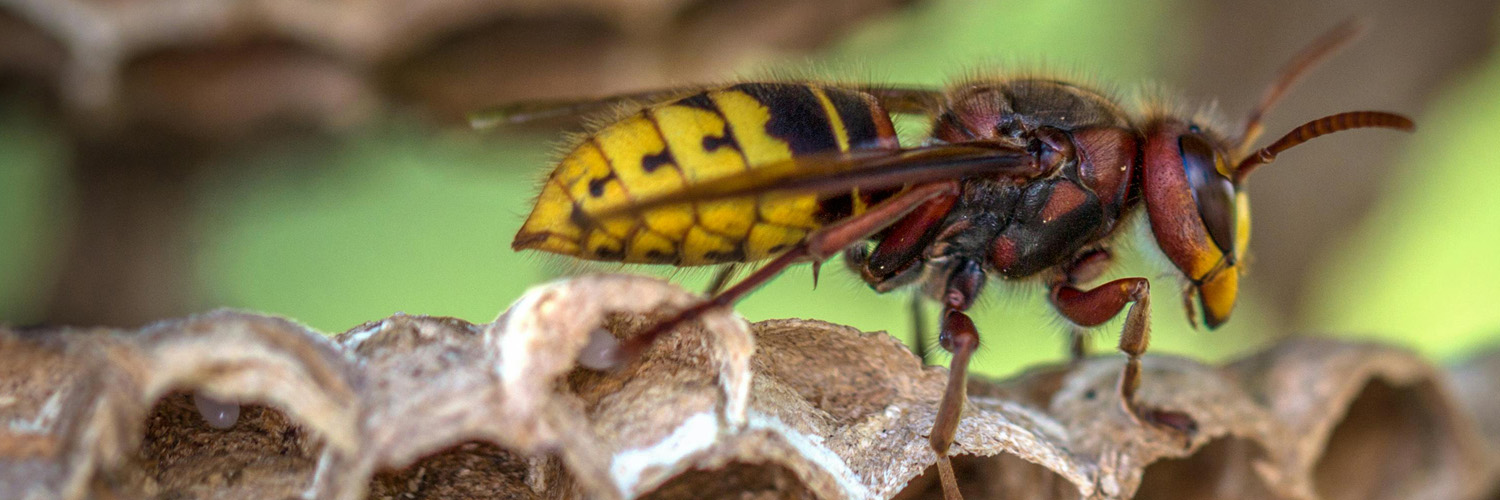Prof Julia MyattDr. Lindsay MurrayCharlotte EvansDr. Rebecca Verspoor |
The new Natural History qualification will enable young people to explore the world by learning about organisms and their ecology, environmental and sustainability issues, and gain a deeper knowledge of the natural world around them.
A key thread that runs through all of natural history is animals and their behaviour, it is an innately fascinating and engaging subject, which helps to explain the world around us and our place in it. Everyone can identify and draw comparisons between their own behaviours and those of other animals, both wild and domestic.

Indeed, with over 57% of UK households owning a pet, animal behaviour and husbandry is a topical subject that many can relate to. Animal behaviour is fundamental to understanding the intricate interactions within ecosystems. They contribute to the balance of predator-prey relationships, competition for resources, and shape the ecological dynamics of natural environments. Studying animal behaviour provides insights into how species have adapted to their environments over evolutionary time. Behavioural traits often reflect adaptations that enhance survival, reproduction, and the overall success of a species within its ecological niche. The rhythms and mechanisms of Earth directly influence the cycles and patterns of ours and other animals’ lives.
However, this delicate system is currently grappling with the profound challenges posed by the ecological crisis. The escalating changes in carbon dioxide levels, pollution, and temperature, primarily stemming from human activities, together with reduction in habitats, are placing unprecedented stress on our planet's ecosystems. As we face the reality of climate change, it is imperative that we recognize the intricate interplay between Earth's processes and the impacts of our actions, fostering a collective responsibility to mitigate the ecological crisis and work towards a more sustainable future.
 Observing (and using the appropriate methods to do so), monitoring and understanding animal behaviour is key to their and our survival. Studying animal behaviour and natural history will give our young people a reason to connect with nature, vitally important if they are to be the ones to care and protect it in the future. It will also provide them with an insight into some of the most crucial careers of this century and begin to provide them with the knowledge to solve the big issues of our time. Understanding animal behaviour enables us to more successfully support wild species in their natural habitat, those in re-introduction programmes, captive breeding and welfare in zoos and the welfare and wellbeing of domestic species.
Observing (and using the appropriate methods to do so), monitoring and understanding animal behaviour is key to their and our survival. Studying animal behaviour and natural history will give our young people a reason to connect with nature, vitally important if they are to be the ones to care and protect it in the future. It will also provide them with an insight into some of the most crucial careers of this century and begin to provide them with the knowledge to solve the big issues of our time. Understanding animal behaviour enables us to more successfully support wild species in their natural habitat, those in re-introduction programmes, captive breeding and welfare in zoos and the welfare and wellbeing of domestic species.
At the Association for the Study of Animal Behaviour (ASAB) we provide a wide range of resources, including videos and lesson plans, to support colleagues teaching animal behaviour through school to Higher Education. We also run events, give talks in schools and provide grants to support teachers to develop their own resources. These resources have already been used by thousands in their classrooms, and we are keen to collaborate to develop more to support the curriculum developing in Natural History.
Current examples of resources include undertaking an observational study of bumblebee foraging behaviour; these crucial ecosystem engineers have a huge impact on the environment and yet are now under threat. Climate change poses a threat to bumblebees by disrupting their habitats and altering the timing of essential flowering periods. Rising temperatures and extreme weather events can lead to mismatches between bumblebee colonies and their food sources, impacting pollination and overall population health. Conservation measures are crucial to address these challenges and protect the vital role bumblebees play in ecosystems and agriculture. Resources such as these not only demonstrate the importance of caring for the environment, but also enable students to develop broader skills in experimental design, critical analysis and problem-solving.
We also utilise webcams and video footage for some of our resources to ensure that the material is accessible and inclusive. For example, the Scottish Seabird Centre in North Berwick has provided footage of their North Atlantic gannets to enable the study of their behaviour without disturbing the colony. Seabirds are particularly impacted by climate change. The UK is thought to be home to over 56% of the world’s population of North Atlantic gannets. However, with likely changes in food availability due to changes in sea temperature, ocean currents and overfishing, and an increase in extreme weather events, such as storms disrupting breeding seasons and nesting sites, it is imperative we monitor these populations and their behaviour for changes.
 While many individuals are interested in natural history and enthusiastic about animal behaviour, the new qualification will also provide a greater opportunity to demonstrate the importance of these subjects for future career development. We are currently seeing a surge in demand for individuals educated in environmental sustainability and allied fields. For example, the need for individuals with biodiversity knowledge is paramount to enable humans to plan how to coexist alongside nature and to comply with new governmental legislation. Indeed, this form of education will also ensure that the connections between the pillars of sustainability (environmental, social and economic) are understood and considered (e.g. through the Sustainable Development Goals). At ASAB, we provide specific materials to showcase the breadth and diversity of career opportunities available in this field and the range of options for further study which can be as wide as psychology, biology, environmental sciences and anthropology in addition to animal behaviour.
While many individuals are interested in natural history and enthusiastic about animal behaviour, the new qualification will also provide a greater opportunity to demonstrate the importance of these subjects for future career development. We are currently seeing a surge in demand for individuals educated in environmental sustainability and allied fields. For example, the need for individuals with biodiversity knowledge is paramount to enable humans to plan how to coexist alongside nature and to comply with new governmental legislation. Indeed, this form of education will also ensure that the connections between the pillars of sustainability (environmental, social and economic) are understood and considered (e.g. through the Sustainable Development Goals). At ASAB, we provide specific materials to showcase the breadth and diversity of career opportunities available in this field and the range of options for further study which can be as wide as psychology, biology, environmental sciences and anthropology in addition to animal behaviour.
As a species we also live surrounded by close animal companions who, as shown during the recent pandemic lockdowns more than ever, confer significant benefits on our physical and mental wellbeing. We have a responsibility to promote the ethical treatment and conservation of animals, and to develop compassion for the natural world in our youngsters. As can be seen from the findings of the RSPCAs Kindness Index in 2023, there is still a gap between what people say they want to do for their pets, and what they are able to do. Spending time teaching young people about these responsibilities will enrich both their lives and other animals’ lives. The close relationship between humans and domestic animals also plays a huge role in our wellbeing. We want to inspire young people to notice the animal behaviours they see around them, prompting more thoughtful reflection on the meaning this may hold for their own lives and the future of the planet.
The role of a GCSE in Natural History is clear, it provides an important space to enable the next generation to better understand the needs of our planet and the importance of understanding the connections between the environment, human wellbeing and the management of the natural world to ensure a sustainable future for all.
The Association for the Study of Animal Behaviour Education Committee
The ASAB Education committee consists of a group of passionate and engaged individuals who want to ensure everyone can find out more about the importance of animal behaviour, from school students through to Higher Education and the general public. Chaired by Prof. Julia Myatt (Education Secretary) and managed by Charlotte Evans (Education Officer) you can find out more about all the members here. If you are interested in becoming a member of the committee please reach out to Charlotte directly (education@asab.org).
Prof Julia Myatt
Julia is the Director of Sustainability Education and a Professor of Collaborative Education at the University of Birmingham. Her background and research expertise lie in behavioural ecology and morphology and she currently focuses her teaching onto how we can better understand how animals are adapted to their natural environments to see how they may cope with adaptation to human induced change (i.e. climate change). She is an experienced field biologist, with time spent working in Indonesia with orangutans and Botswana with African wild dogs, lion, leopard and cheetah. She’s even been known to spend some time GPS tagging sheep in the past as well. Her research has mostly focused on biomechanics and locomotion, but also extends to the social structure of groups and how they interact (e.g. during cooperative hunting). She also has a strong interest in captive welfare and ensuring that individuals are able to display wild-type behaviours through modifications to their enclosures. These days though she is more often found applying her knowledge of collaborative animal behaviour to education, working to design and develop innovative and cross-disciplinary education programmes to ensure the next generation have the skills needed to operate in a complex, interconnected landscape.
Dr Lindsay Murray
Lindsay is a Senior Lecturer in Animal Psychology at the University of Chester. Her research interests are predominantly in primatology, particularly personality, laterality, social behaviour and self-recognition, but also extend to wider aspects of animal behaviour, including elephant grief, human impact and ecotourism involving brown bears. She is on the Council of the Primate Society of Great Britain, where she is Editor of Primate Eye, and the Virtual Networking Scheme Committee and Education Committee of the Association for the Study of Animal Behaviour, and is also a Senior Fellow of the Higher Education Academy.
Charlotte Evans
Charlotte is the Education Officer for the ASAB Education Committee. She spent 12 years as a full time secondary science school teacher and then left to have adventures. Now working as an educator, facilitator and communicator, she is ASAB’s go to for the education committee.
Dr Rebecca Verspoor
Becky is a Programme Director for the School of Life Sciences at the University of Liverpool, with a Bsc (Hons) in Zoology and PhD in Behavioural Ecology. Becky teaches on a variety of undergraduate and postgraduate courses including animal behaviour, ecology-based field trips, bird identification and statistics.
Keep up to date with our proposed GCSE in Natural History and other Cambridge OCR Natural History news by signing up our email newsletter and updates. You can read back issues of our Natural History newsletter here.


